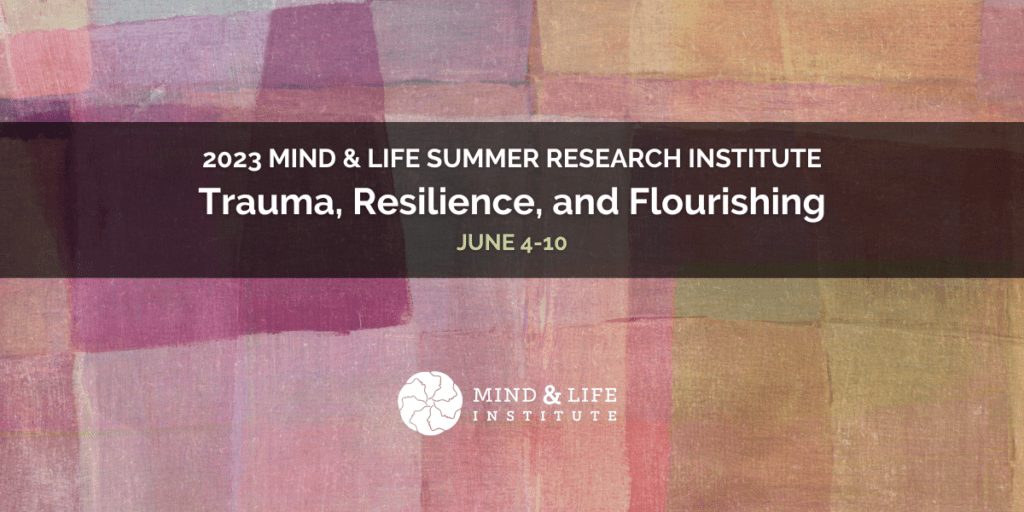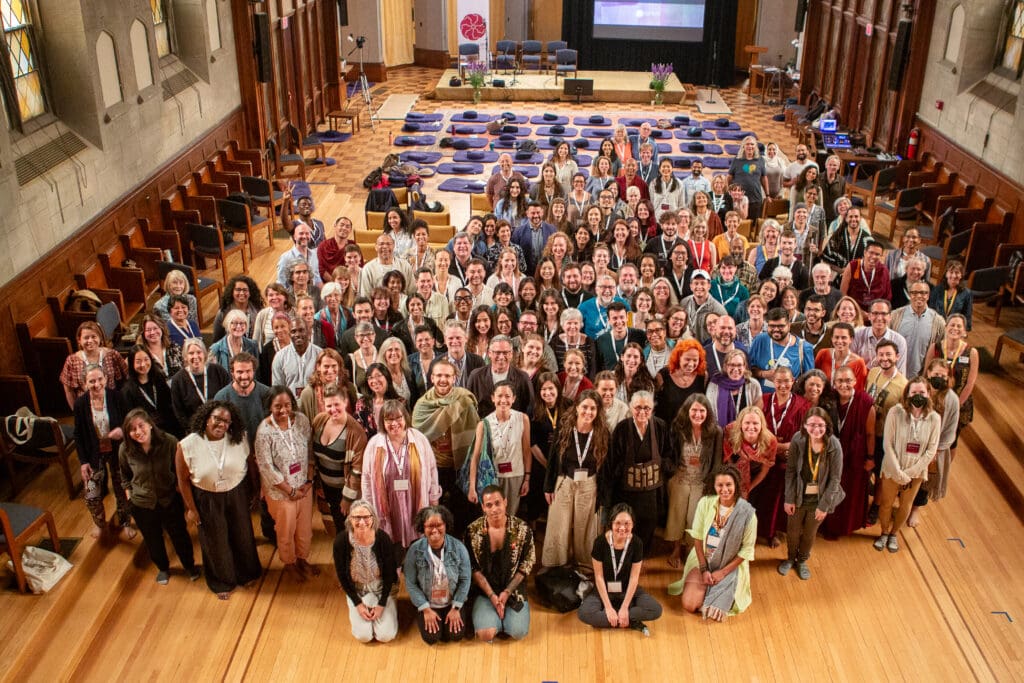
The following reflection by no means captures the totality of knowledge, wisdom, and relational experiences shared during Mind & Life’s 2023 Summer Research Institute (SRI) held from June 4-10. Rather, it is a reflection of what precipitated through the associative web of my thoughts and emotions during SRI this year. Precipitation in Chinese, my mother tongue, is 沉淀 (Chén Dìan). It is used to describe the downward settling movement of solids in a body of fluid. It is further used to poetically describe the process of distillation and crystallization of knowledge and wisdom in quietude and stillness.
Arriving at a place can be nerve-racking. Not knowing anyone. Not knowing the surroundings. Not knowing if people will receive you as you are. Not knowing if the mattress will cradle you into sound sleep. Arriving at Mind & Life’s 2023 Summer Research Institute at the Garrison Institute in New York was no exception.
Being the first time SRI was held in person after three years of virtual conferencing seeded a sense of hope for me. I have always found refuge, groundedness, and hope in equitable loving relationships. Simple moments of being greeted with a gentle smile and hugged with a tight squeeze almost always replace arrival anxiety with a sense of ease. The mutuality of compassion and care paradoxically introduces a greater sense of spaciousness as two individuals move closer to one another. Perhaps in that space, we may find consolation, liberation, and inspiration. As bell hooks reminds us, “without love, our efforts to liberate ourselves and our world community from oppression and exploitation are doomed.” With conviction in the liberating power of love, I arrived at SRI 2023—along with 120+ other participants from 17 countries—to explore together the theme of “Trauma, Resilience, and Flourishing.”
“Without love, our efforts to liberate ourselves and our world community
from oppression and exploitation are doomed.”
–bell hooks
What would scientific research and social justice work look like if researchers, contemplatives, activists, and community members followed an ethics of love? How might we engage in the process of scientific inquiry and social justice advocacy with the intention and action of love and liberation? And how might people, other species, and planet Earth be active partners in this process?
Being immersed in the relational landscape of SRI deeply nourished my exploration of these questions. I found myself in kinship with a community of people who care deeply about the well-being of their fellow human beings and the wondrous planet Earth we call home. In such kinship, I easily found a sense of belonging and the courage to cultivate and practice the language and action of love as a community-engaged scholar. As hooks and Howard Thurman remind us, truth emerges in community.
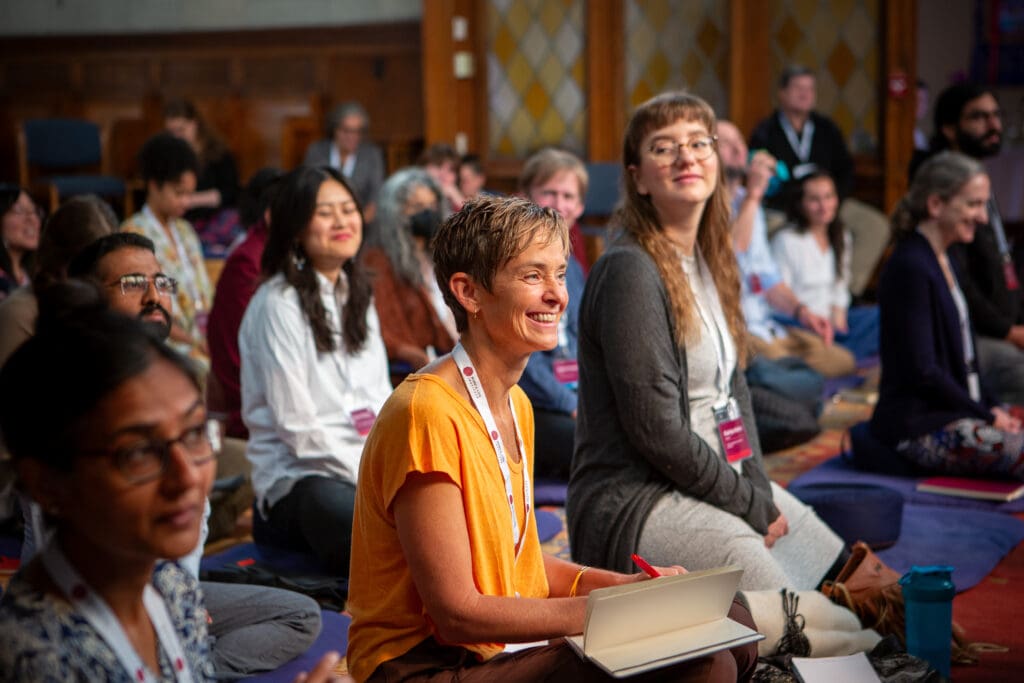
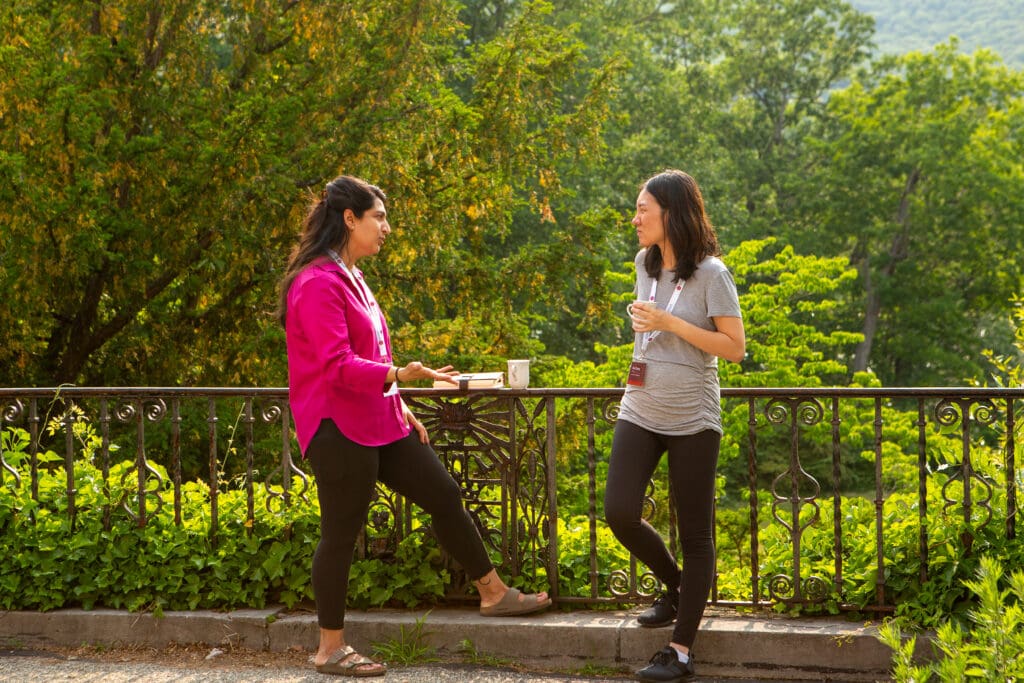
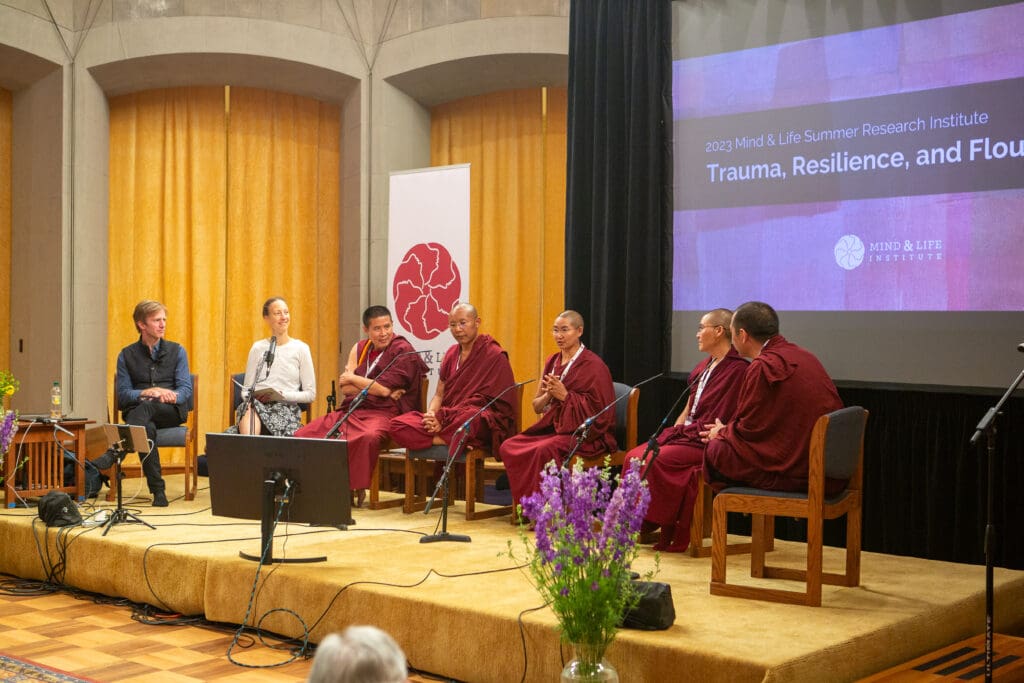
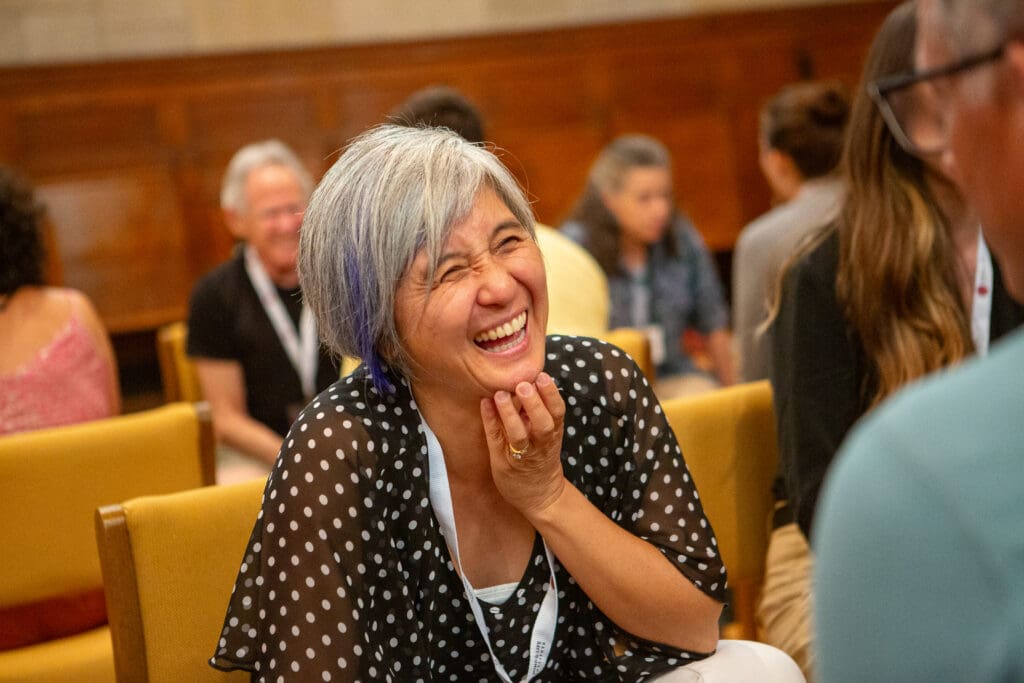
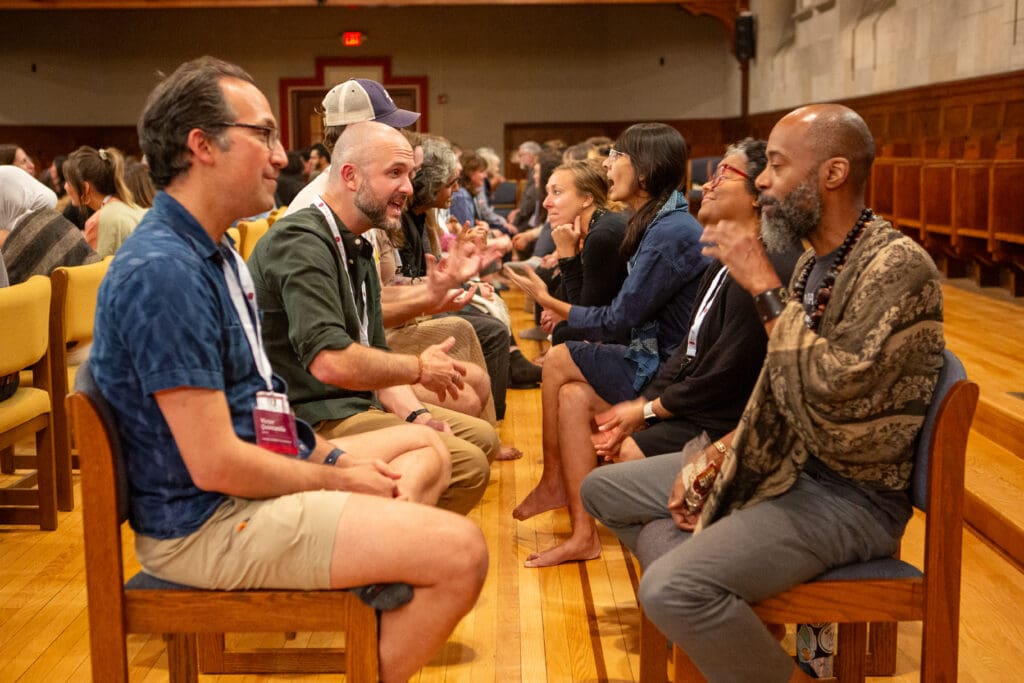
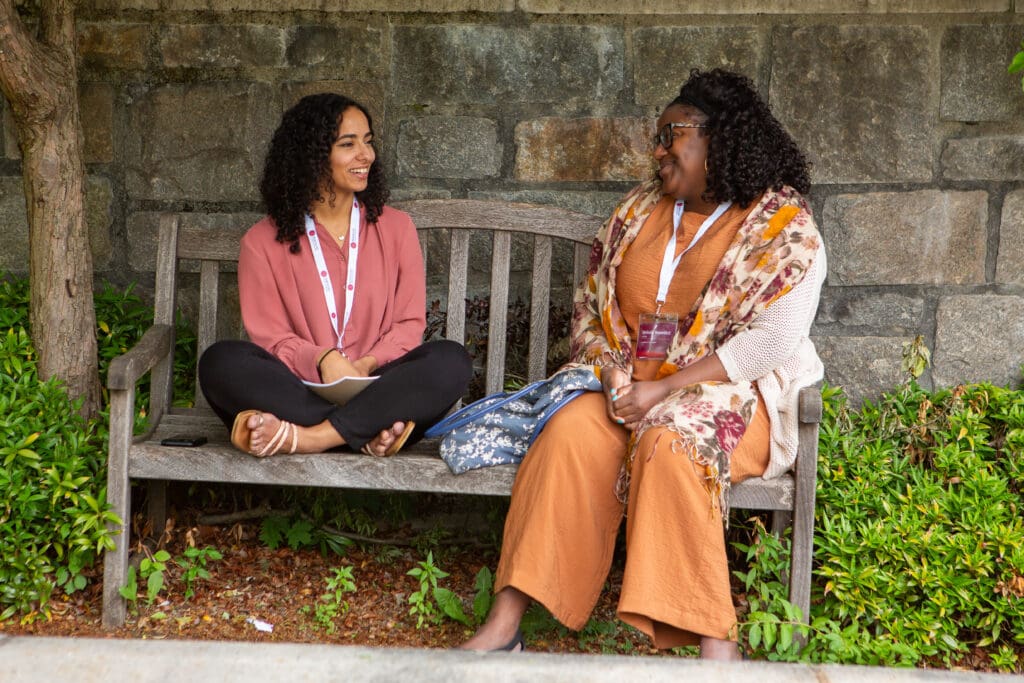
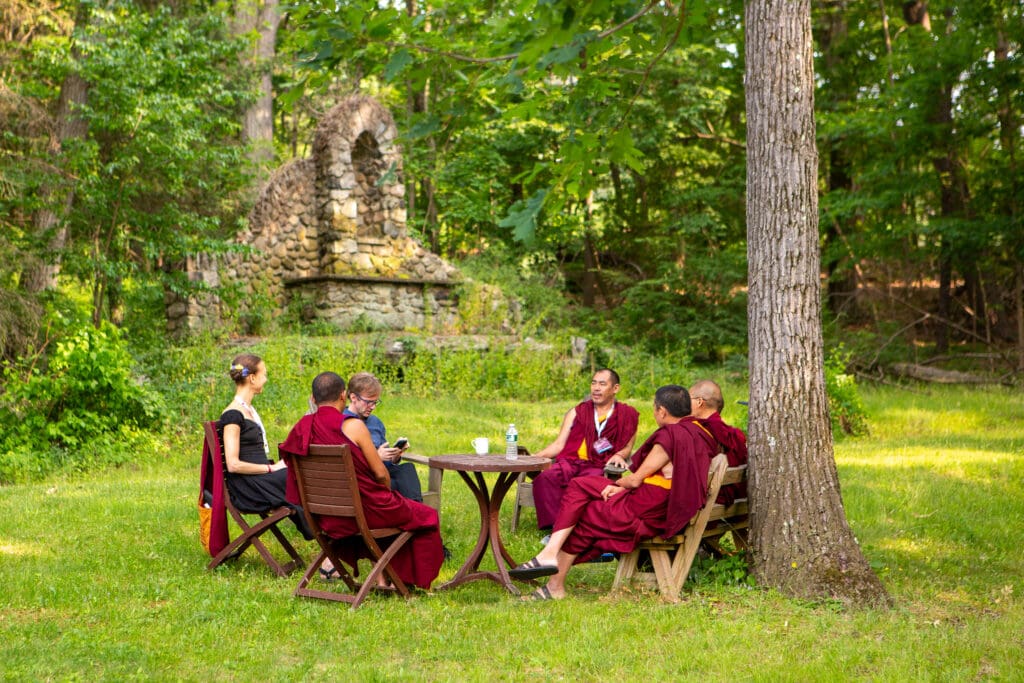
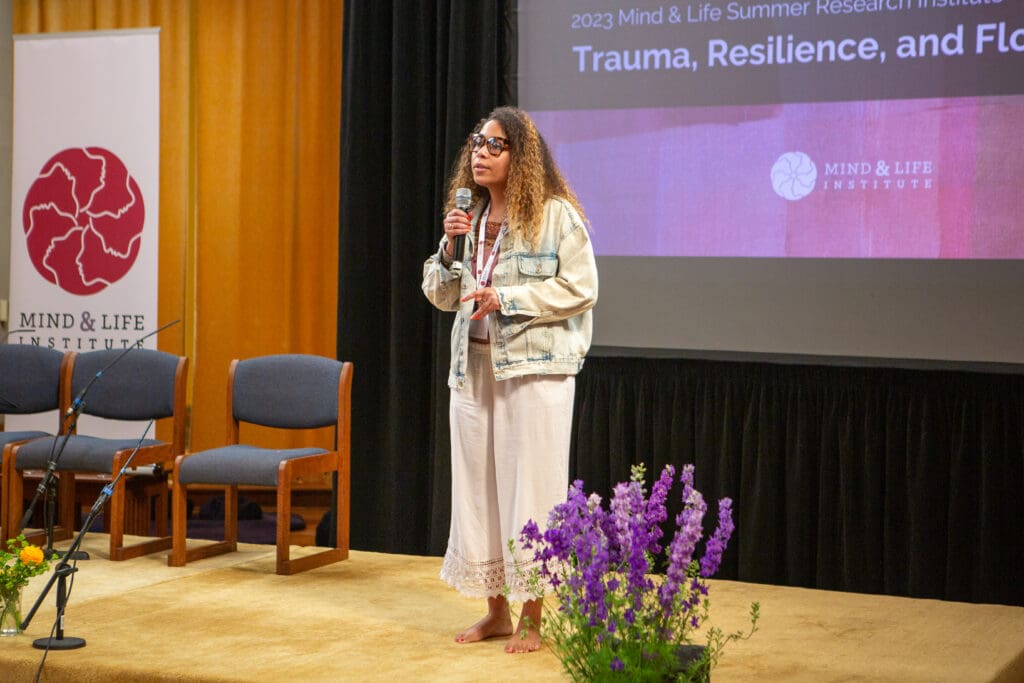
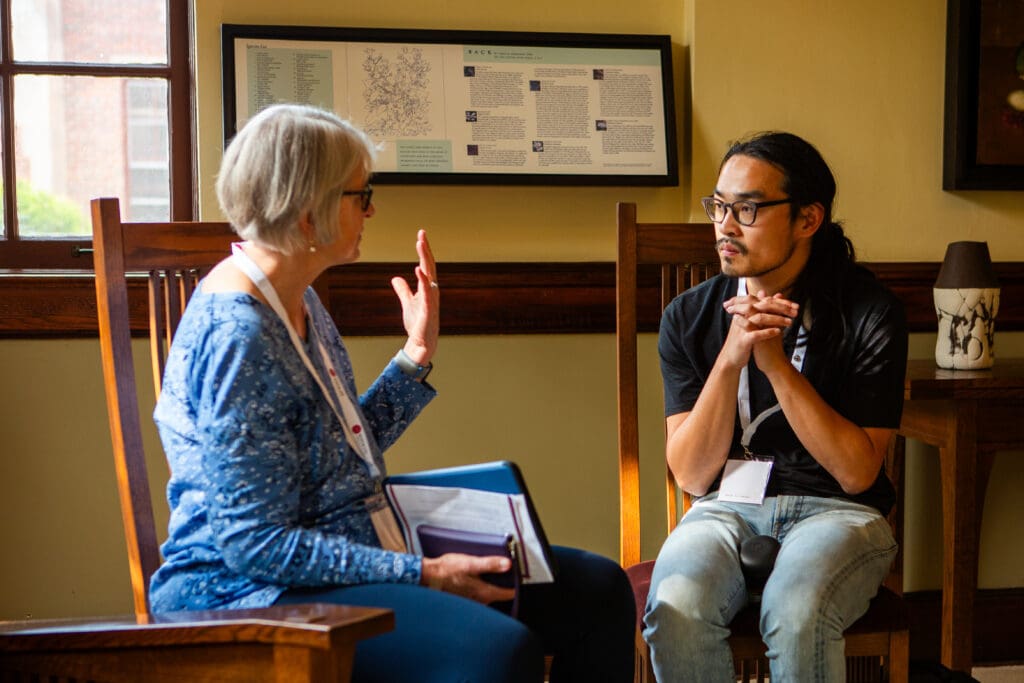
Further, learning how individuals attempt to enact such care with responsibility and rigor is awe-inspiring. Granted, there is no guarantee in the success of such attempts. We inevitably stumble, make mistakes, and cause relational ruptures. Yet perhaps the magic is in sustained and collective attempts to responsibly align the intention of care and the impact of action in an ethics of love to the destination of collective liberation. Through collective practices of love rises hope.
Such hope was solidified and amplified throughout the SRI. From presenters like restorative justice facilitator sujatha baliga, we learned that change in the outer world begins within. “If you’re aspiring to be a lamp for others, you need to do your own work,” she said. From Natalie Avalos, an ethnographer of religion, we heard that individual and societal healing lies in a return to equitable relationships and the cultivation of a “community of love.” She encouraged the creation of spaces where we can celebrate who we are—and our differences. Many such insights and actions emerged from plenary talks, breakout discussions, small group reflections, dyadic dialogue, and individual contemplations. Underlying the diversity in the content of these insights lies the common thread of justice and compassion.
As hooks, Dr. Martin Luther King Jr, and many others remind us, the ethics of love is deeply rooted in interdependence. Both Tibetan monastic teachers and mindfulness teacher Jon Kabat-Zinn emphasized the interdependent nature of our existence and called upon us to co-construct emerging realities via embodied compassion for all. Actualizing the essence of interdependence is to wholeheartedly embrace the notion that there is no other, and to radically enact compassion to dissolve all systems of domination and cultivate communities of love. As we extend ourselves for ourselves and others’ dignity, liberation, and well-being, we meet each other under the tree of love in communion. In such space, the experiences of trauma can be witnessed with love, held with compassion, beared with strength, and transcended with wisdom.
Many tears were shed, hugs given and received, and laughter transmitted and echoed during the SRI. Many of us, if not all, arrived with identities of many and departed in one. We entered the space ushering the second language of science, arts, and spirituality, and departed in our mother tongue of love. We have traveled far in our individual fields and reunited in the field of collective love and liberation, where we are reminded why we voyage afar in the first place.
May we continue to nourish the soil of liberation via our relationships in ethics of love.
May we continue to water the seedlings of liberation via all languages of our gifts.
May we continue to find communion within ourselves and each other on the path of liberation.
Again, and again.
Yikai Xu is a PhD student in counseling psychology at Culture Emotion, and Health Lab at New York University and a member of Mind & Life’s Young Adult Advisory Council.

